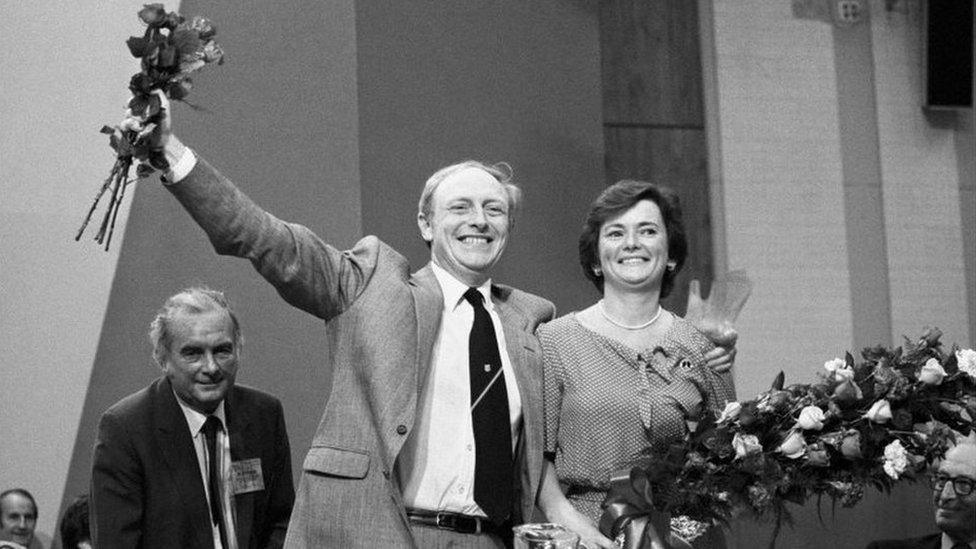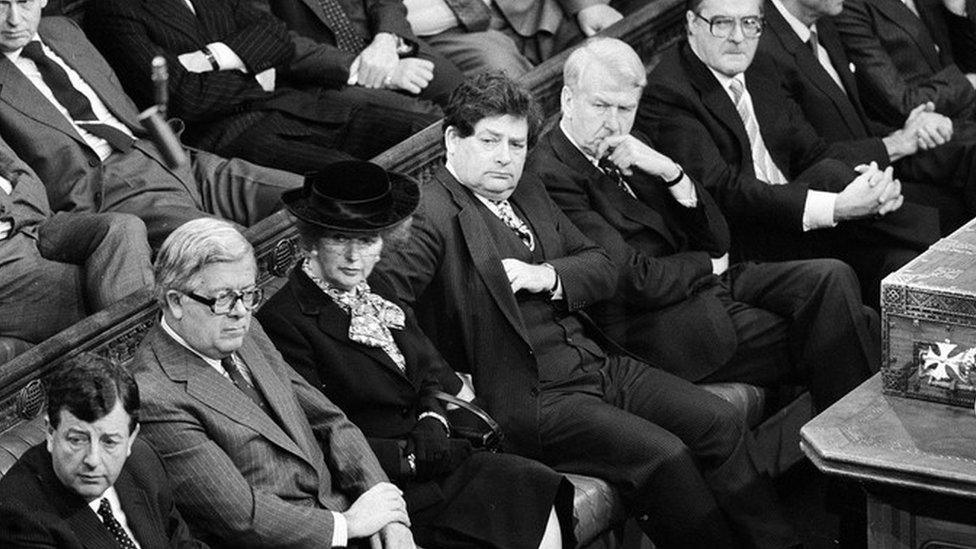Socialism must work in practice, says Lord Kinnock
- Published
Lord Kinnock on challenging Margaret Thatcher
Former Labour leader Lord Kinnock says he still believes socialism is "the way to emancipate the world" but says it has to "work in practice".
In a wide-ranging interview about his life and career, the peer said that if the Labour Party does not work, it was "no good for working class people".
He said he was chosen to lead his party because he was "of the left" but was also "sane and sensible".
He led the party from October 1983 until its 1992 general election defeat.
The peer, who succeeded Michael Foot as Labour leader following the party's 1983 defeat, is widely regarded as having been a transitional leader, saving Labour from near political oblivion and helping to sow the seeds of New Labour.
Bevan as guide
He told BBC Parliament he still believed that socialism was "the way to emancipate the world" but accepted that he had ended up talking much about common sense and realism.
"You can enchant people by ideological flights of fancy, but that's not going to help them at all," he told BBC Parliament.

Mr Kinnock lost two elections but transformed the party during nearly a decade as leader
He said his "greatest guide", Nye Bevan, had based the NHS on a working model of "collective provision of quality healthcare" paid for by worker contributions in Tredegar, the town he came from.
"That showed that socialism had to work in practice, or it was a decoration and being a socialist was nothing better than a hobby."
He also revealed the frustration he felt during the latter years of Tony Blair and Gordon Brown's governments: "They allowed themselves to lose impetus because … underneath it all, confidence was declining, and I regret that because these were good, talented people with a noble cause."
He said he tried to explain his concerns to Mr Blair at the time, "but I simply got agreement, and there is nothing more infuriating than getting agreement and no action", he said.
Thatcher challenge
Lord Kinnock also gave an insight into the challenge he had as leader of the opposition during the time Margaret Thatcher was prime minister.

Mr Kinnock admits to a "degree of care" when taking on Margaret Thatcher in Commons
"I could never really tackle her in the way in which I was able to tackle John Major, a man of the same age and same kind of background.
"If I misjudged it with Margaret Thatcher and even managed to land a blow, the consequences would not be full credit", he added.
Lord Kinnock said his difficulties may have been due to his upbringing or "innate courteous deference".
"I knew that, in my choice of language and in my choice of targets, I had to take a degree of care."
The Labour peer said his socialist values were formed growing up in the valleys of south Wales, where his father was a miner and his mother a district nurse.
Brexit 'grief'
Lord Kinnock - who stood down as Labour leader after the party lost the 1992 general election - went on to became a European Commissioner from 1995 to 2004.
He said he still grieves over the UK's vote to leave the EU in June's referendum, but understands people's motivations for voting for Brexit.
"I understand why they accepted the absolutely false prospectus that was hurled at them for over 30 years by newspapers and some politicians, and latterly those who argued for the Leave campaign.
"The awful reality is the people who will suffer most… will be a lot of the people who voted to leave because they were taught to become obsessed with immigration, particularly in areas where there is no immigration."
The programme - Conversations - is available to view on BBC iPlayer.